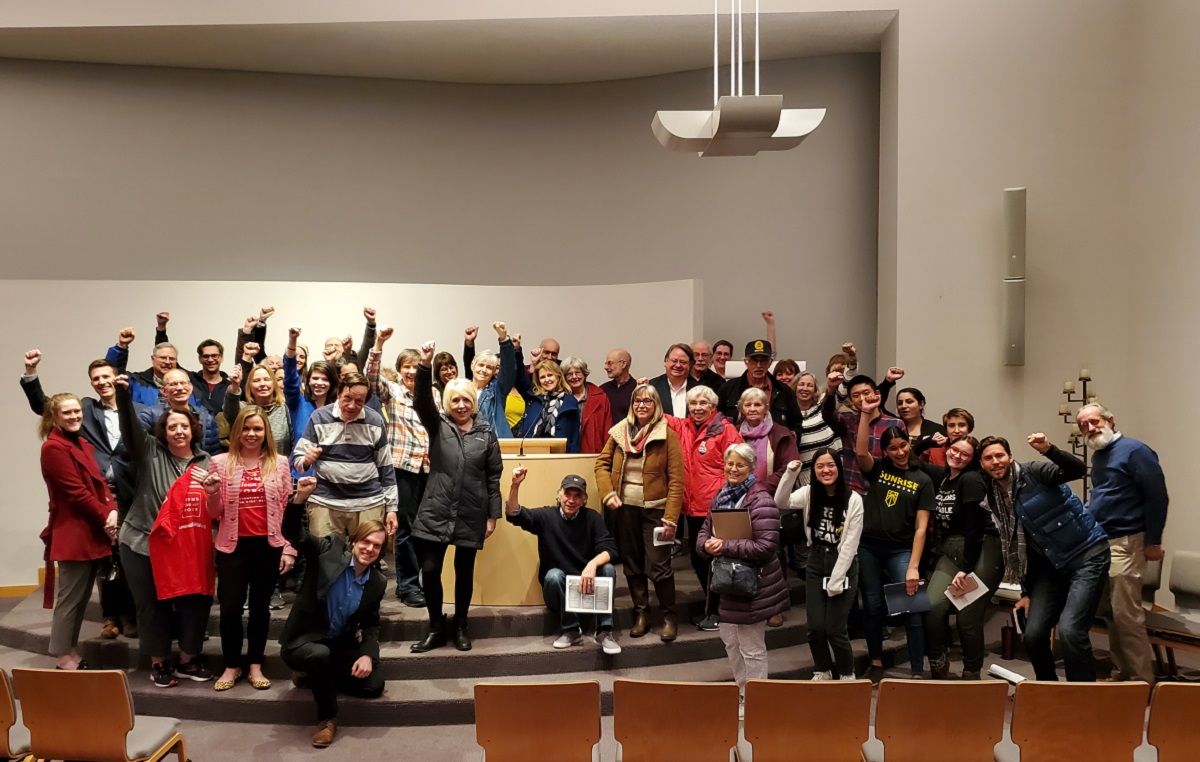Before August 2019, Oakland County, a suburb bordering the north of Detroit, was dominated by its seven-term county executive L. Brooks Patterson. Rising to prominence opposing school integration in the 1970s, Brooks’ three-decade reign in Oakland County marked a dark period, noted for its embrace of exclusion and division, as well as its anti-environmentalism.
Brooks was known for his antagonistic relationship with Detroit. His legacy offers an example of the ways racism is killing the planet. Brooks' racism led him to oppose many environmental reforms, including his famous opposition to public transit. Furthermore, aside from some energy efficiency improvements at the county’s airport, almost all efforts towards climate justice were dead on arrival.
Less than two years after his death, however, Oakland County has risen to become a leader in Michigan’s fight against climate change. It has pledged to reach net-zero emissions by 2050, and have allocated an initial investment of $750,000 to fight climate change, with more promised. It is committed to expanding its public transit system in partnership with Detroit, and has openly stated its commitment to equity in all environmental decisions. How did this happen? How did one of the most reactionary counties in Michigan turn around in such a short time?

It Wasn’t Inevitable. It Was Organizing.
Some observers might be tempted to note demographic shifts as the explanation for environmentalists’ success. Certainly, Oakland County is more diverse than it has ever been. The suburbs nationally have also shifted from red to blue, which allowed the Democrats to take control of both the Oakland County Commission and the executive’s office.
But Oakland County’s new Democratic leaders didn’t necessarily come into office with strong environmental ambitions. When newly minted Oakland County Executive Dave Coulter gave his first “state of the county” address, he spent just a minute talking about his environmental commitments, which were limited to starting a revolving fund for green energy. There were no climate goals announced, and nothing said about environmental justice.
The Oakland County Climate Campaign and Climate Platform
Dissatisfied with this commitment, organizers from Clean Water Action, the Sierra Club, and the Michigan League of Conservation Voters got together to form the Oakland County Climate Campaign. We consulted with racial justice groups, unions, churches, and other environmentalists to create the 2020 Climate, Jobs, and Justice Platform, a list of steps Oakland County needed to take to lead on climate justice.
Once we were satisfied we had a workable platform, we built an organization around it. We engaged the high schoolers at the Sunrise Movement and the climate justice program at the local branch of the NAACP. We gave dozens of community presentations at clubs and public venues. We held a campaign kickoff right before COVID-19 struck that attracted over 100 people. We demanded immediate action on climate, and we weren’t going to rest until something was done.
The Long Fight
When COVID hit, we resolved to continue organizing as hard as before. We held six town halls to get people involved in our work and interested in the different parts of our platform. We had citizen-lobbyists meet with their county commissioners, which led to the development of alliances with Commissioners Kirsten Nelson and Gwen Markham. Whenever our decision-makers held a town hall, we were there. We assembled neighborhood teams in every community we could. We partnered with the Sierra Club's Michigan chapter, and their political program was instrumental in creating the necessary conditions for change.
We also forged new partnerships. The NAACP and the Michigan League of Conservation Voters have not historically been close partners with the Michigan chapter. But we built new relationships based on mutual needs. The Black community in Oakland County, like Black communities across the country, faces a high energy burden, meaning that their electricity bills demand a high proportion of their income. Our coalition focused heavily on relieving that burden through energy efficiency programs for low-income customers.
Last month, when the commission met for a vote on funding new climate initiatives, our coalition delivered more than 73 public comments during the meeting, with a whopping 87 percent in support. It passed 11-10 along party lines, although the Republicans did not deny that climate change is real in their rebuttal. Instead, they opposed it on procedural and bureaucratic grounds.
“The Best Environmental Organizing in a Decade”
The significant grassroots pressure generated by our coalition got results. Oakland County announced a goal of reaching net-zero emissions by 2050, which was one of our coalition’s primary demands. It also committed to spending $750,000 to hire a sustainability firm and appoint a chief sustainability officer. While further commitments have not been finalized, we suspect the chief sustainability officer will become the director of a new sustainability department. Furthermore, the county has hired the infrastructure consulting firm AECOM to conduct an energy audit of its buildings.
The chair of the Oakland County Commission, David Woodward, sent me a text calling our campaign the best he’s seen in local environmental politics in at least a decade.
This would not have been possible without the work of our local coalition, and the hundreds of people involved in it. But the fight is far from over. We know our communities are not sustainable, and that the journey ahead will be a challenge. This is a task that will require change at all levels of government, and across the energy and transportation systems and the built environment. However, our coalition, and the elected officials we influenced, has planted a seed. Other Michigan counties have copied what we’ve done and started developing their own climate plans. Future generations of Oakland County residents can look back at this moment as an important starting point for positive change.
